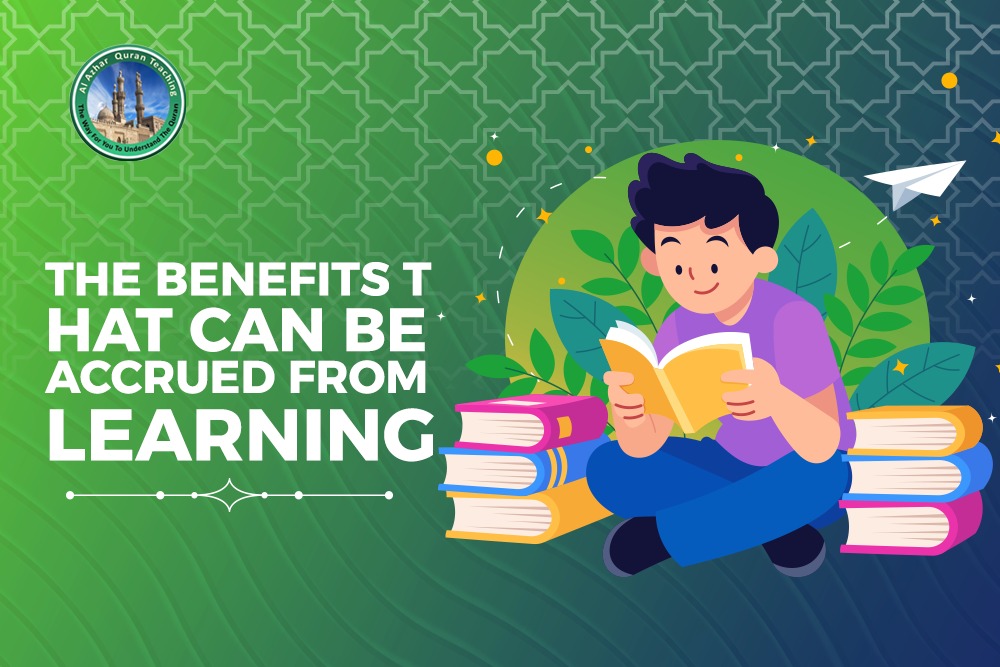Learning is an essential component of human existence. We begin to learn about the world around us the moment we are born. As we grow older, education helps to structure and formalise our learning. However, learning is not limited to the classroom. Learning has numerous advantages that we can reap throughout our lives.
One of the most obvious benefits of learning is that it aids in the acquisition of new knowledge and skills. This is especially true in today’s fast-paced world, where technological and other advancements are constantly changing the way we live and work. We can keep up with these changes and remain competitive in our chosen fields by continuing to learn throughout our lives.
Why Should We Learn?
Learning is an essential part of human life. It is a continuous process that allows us to grow and develop as individuals. There are numerous reasons why we should learn, and we will look at some of them in this article.
- Personal development
Learning allows us to develop as people. It enables us to gain new knowledge and skills that we can apply in our personal and professional lives. We can gain confidence, independence, and self-sufficiency by learning new things.
- Career Advancement
Learning is also necessary for career advancement. It is critical to keep up with the latest trends and technologies in our respective fields in today’s fast-paced world. We can boost our job performance by learning new skills and techniques.
- Stimulation of the Mind
Learning can be intellectually stimulating as well. It allows us to investigate new ideas and concepts that we may not have encountered before. This can lead to personal development and a better understanding of our surroundings.
- Personal Satisfaction
Personal fulfilment can also be obtained through learning. When we learn something new, we feel a sense of accomplishment and fulfilment. This has the potential to boost our self-esteem and make us feel good about ourselves.
- Interaction with Others
Learning can be a social activity as well. It enables us to communicate with others who have similar interests or passions. This can result in new friendships and connections, which can enrich our lives.
Learning is a fundamental aspect of human life. It is the process of acquiring knowledge, skills, and values through study, experience, or instruction. Learning can take place in various forms such as formal education, informal learning, and self-directed learning. The features that can be achieved from learning are numerous and diverse. In this article, we will explore some of the key features that can be achieved from learning.
Being a reader is one of the most important habits one can cultivate. Reading not only broadens our knowledge but also helps us improve our vocabulary, grammar, and writing abilities. It’s a great way to get away from the monotony of everyday life and discover new worlds, ideas, and perspectives.
Reading can also help us develop empathy and understanding for others. We can broaden our horizons and become more open-minded people by reading about different cultures, lifestyles, and experiences. It can also help us improve our critical thinking skills by analysing the content we read and forming our own opinions.
It is easy to overlook the importance of reading in today’s fast-paced world where technology dominates our lives. However, we must make time for this activity because it has numerous advantages for both our personal and professional development.
In other words, reading is a vital habit that everyone should develop. It improves not only our knowledge, but also our mental health and overall well-being. So grab a book and start exploring new worlds today!
Learning is a skill that can be refined over time. It is not innate or fixed, but rather something that can be improved through practise and dedication. One’s cultural background can have a big impact on how they approach learning and what they prioritise in school.
For example, rote memorization and repetition are highly valued as methods of learning in some cultures, whereas critical thinking and problem-solving skills are emphasised in others. When working with people from various backgrounds, it is critical to recognise and respect cultural differences.
Individual learning styles, in addition to cultural factors, play a role in how effectively one can acquire new knowledge and skills. Some people learn best through visual aids or hands-on activities, while others prefer reading or listening to lectures.
Finally, the key to successful learning is determining what works best for each individual and being willing to try new approaches. Anyone can develop the skill of learning and achieve their educational objectives with dedication and persistence.
Learning Quran online has grown in popularity in recent years as more people turn to the internet for their educational needs. With the advancement of technology, it is now easier than ever to obtain high-quality Quranic education from the convenience of your own home.
The convenience factor is one of the primary advantages of learning Quran online. Students can study at their own pace and on their own time, without having to commute to a physical location. This is especially useful for people who live in areas where there are no Islamic schools or teachers.
Another benefit of online Quranic education is its flexibility. Students can select from a variety of courses and programmes based on their level of knowledge and comprehension. They can also choose courses that are specific to their interests, such as Tajweed or Tafsir.
Students can also access highly qualified teachers from all over the world through online Quranic education. This means that students can benefit from a variety of teaching styles and perspectives, allowing them to gain a deeper understanding and appreciation for the Quran.
Overall, learning the Quran online is a fantastic option for anyone looking to expand their knowledge and understanding of Islam’s holy book. It’s no surprise, given its convenience, flexibility, and access to high-quality teachers.

